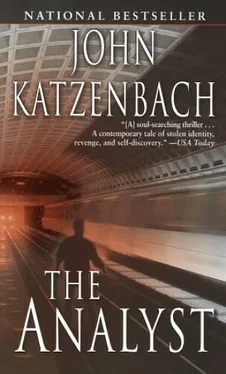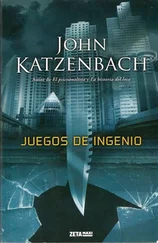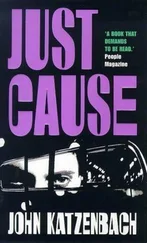Creating the history and the personality of his new self didn’t worry him. He was, after all, an expert in the connection between actual events and the impressions these made on the self. Of greater concern was precisely how to create the numbers that would make the new Ricky believable.
His first sortie out on this task was a failure. He went to the library at the University of New Hampshire, only to discover that he needed a college identification card to get past the security at the door. For a moment, he looked longingly at the students wandering through the stacks of books. There was, however, a second library, significantly smaller, located on Jones Street. It was a part of the county library system, and, while lacking the volume and the cavernous quiet of the university, still had what Ricky thought he would need, which was books and information. It also had a secondary advantage: Entrance was open. Anyone could walk in, read any newspaper, magazine, or book in any one of the large leather chairs interspersed throughout the low-slung, two-story brick building. To check out a book would require a card, however. The library also had another advantage: Along one wall was a long table with four different computers set up. There was a printed list of rules for operating the computers, which started with the first-come, first-available, rule. Then operating instructions.
Ricky eyed the computers, and thought to himself that perhaps they might be of assistance to him. Unsure where to start, wearing a sort of antique attitude about modern devices, Ricky, the onetime man of talk, wandered into the stacks of books, searching for a section on computers. This did not take more than a few minutes to uncover. He tilted his head slightly, to be able to read the book titles along their spines, and within moments spotted one entitled: Getting Started in Home Computing-A Guide for the Uninitiated and Afraid .
He dumped himself into a leather armchair and started reading. The prose in the book was irritating and cloying, directed toward true idiots, he thought. But it was filled with information, and, had Ricky been a little more astute, he would have understood that the childish word formations were designed for people such as himself, because the average American eleven-year-old already knew everything contained within the pages.
After reading for an hour, Ricky approached the rows of computers. It was midmorning, midweek, late in the summer, and the library was almost empty. He had the area to himself. He clicked on one of the machines, and drew himself up to it. On the wall, as he’d noted, were instructions, and he skipped down to the segment where it explained how to access the Internet. He followed the directions and the computer screen leapt to life in front of him. He continued clicking buttons and typing in instructions and within a few more moments had jumped full-bore into the electronic world. He opened up a search engine, as the guidebook had told him to, and typed in the phrase: False Identity .
Less than ten seconds later, the computer told him there were more than 100,000 entries under that category, and Ricky started to read from the beginning.
By the end of the day, Ricky had learned that the business of creating new identities was a thriving one. There were dozens of companies spread throughout the world that would provide him with virtually every sort of false documentation, all of which was sold under the disclaimer for novelty purposes only. He thought there was something transparently criminal in a French business that offered to sell a California driver’s license. But while transparent, it was also not against the law.
He made lists of places and documents, putting together a fictional portfolio. He knew what he needed, but obtaining it was a bit of a problem.
He realized swiftly that people seeking fake identities already were someone.
He was not.
He still had a pocket filled with cash, and locations where he could spend it. The problem was, they all existed in the electronic world. The cash he had was useless. They wanted credit card numbers. He had none. They wanted an E-mail address. He had none. They wanted a home to deliver the material to. He had none.
Ricky refined his computer search and started reading about identity theft. He discovered that it was a thriving criminal enterprise in the United States. He read horror story after horror story about people who awakened one day to find their lives in turmoil because someone somewhere with little conscience was running up debts in their name.
It wasn’t a difficult leap for Ricky to recall how his own bank and brokerage accounts had been eviscerated, and he suspected that Rumplestiltskin had accomplished all this with remarkable ease simply by acquiring a few of Ricky’s numbers. It helped explain why the box containing his old tax returns was missing when he went to search for it. It wasn’t particularly difficult to be someone else in the electronic world. He promised himself that whoever he managed to become, he would never again idly toss into the trash a preapproved credit card application he received unsolicited in the mail.
Ricky pushed himself away from the computer and walked outside the library. The sun was shining brightly, and the air was still filled with the heat of summer. He continued walking almost aimlessly, until he found himself in a residential area filled with modest two-story wood-frame houses and small yards often littered with bright plastic children’s toys. He could hear some young voices coming from a backyard, out of sight. A dog of undetermined breed looked up from where he rested on one small lawn, restrained by a rope tied at one end to his collar and the other to a thick oak tree. The dog wagged his tail vigorously at Ricky’s appearance, as if inviting him to come over and scratch its ears. Ricky looked around, at tree-lined streets, where the shadows thrown by leafy branches created dark spots on the sidewalk. A slight breeze ruffled through the canopy of green, making the streaks and splotches of darkness on the sidewalks shift position and shape, before returning to rest. He took a few more strides down the street and in the front window of one house, he saw a small, hand-lettered sign: room to rent. inquire within.
Ricky began to step forward. That’s what I need, he said to himself.
Then, as abruptly, he stopped.
I have no name. No history. No references.
He made a mental note of the location of the house, and walked on, thinking to himself: I need to be someone. I need to be someone who can’t be traced. Someone alone, but someone real.
A dead person can come back to life. But that creates a question, a small rend in the fabric, that can be uncovered. An invented person can suddenly rise out of imagination, but that, too, creates questions.
Ricky’s problem was different from the criminals, the men seeking to run away from alimony payments, the ex-cult members afraid they were being followed, the women hiding from abusive husbands.
He needed to become someone who was both dead and alive.
Ricky thought about this contradiction, then smiled. He leaned his head back, facing into the bright sun.
He knew exactly what to do.
It did not take Ricky long to find a Salvation Army clothing store. It was located in a small, undistinguished shopping mall on the main bus route, a place of pavement, low-slung, square buildings, and bleached and peeling paint, not exactly decrepit and not precisely run-down, but a place that showed the fraying of neglect in trash cans that hadn’t been emptied and cracks in the asphalt parking lot. The Salvation Army store was painted a flat, reflective white, so that it glowed in the afternoon sun. Inside, it was similar to a small warehouse, with electrical appliances like toasters and waffle irons for sale on one wall, and rows of donated clothing hanging from racks occupying the center of the store. There were a few teenagers pawing through the racks, searching for baggy, fatigue pants and other bland articles, and Ricky sidled in behind them, inspecting the same piles of clothes. It seemed to him upon first glance that no one ever donated anything to the Salvation Army that wasn’t chocolate brown or black, which fit his imagination.
Читать дальше












